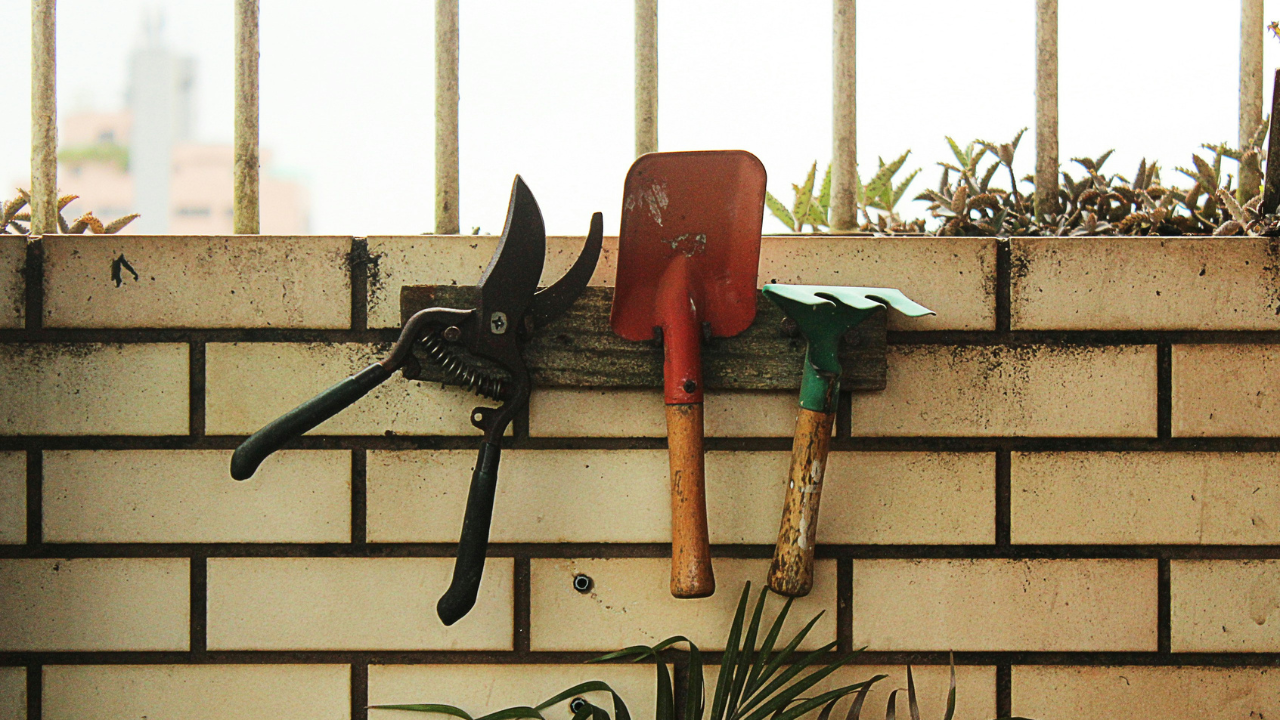10 essentials every gardener should have in their tool kit
Hoping to make some progress on your garden this summer? These are the must-have tools you need!


You know you’re a fully grown adult when the thought of having a tool kit is exciting. Whether you’re renovating your garden or just making a few adjustments here or there, having the best garden tools is an important factor as well as a thrilling one. You don’t want to find yourself missing a tool that will complete the project you’ve been working on for days. It is an annoying and time-consuming hindrance, and nobody deserves that when they’ve been working so hard.
Everyone should be able to tackle small garden DIY projects and have the knowledge to do so. As a helping hand, we’ve come up with a guide for the most important tools you should have in your tool box. Don’t worry, you can thank us later.
Before we begin, have you seen the important gardening jobs you need to complete in May? Be quick, there’s only a few weeks left!
1. Gloves
Before you start digging up those pesky weeds and deadheading any sad-looking roses, invest in a good pair of gardening gloves that will protect your hands. Check out our round up of the best gardening gloves for the top options out there!
Top tip: Find a good quality pair that are multi-purpose. They will also protect your hands against cuts, soil, insect bites and skin irritants and you can use them for so much more than just gardening.
2. Hose
A quality hose with an adjustable nozzle is a must-have for watering plants around your garden. Getting a nozzle that can offer lighter spray options will broaden your watering options, allowing you to cover both established beds and more delicate seedlings and plants. However, make sure you don’t make these garden hose mistakes during a heatwave!
Top tip: You may not realise but many hoses leach harmful chemicals, including lead, which can be extremely dangerous. Whilst this may not be your main priority for watering your plants, if you were to fill up a paddling pool with one, it can have detrimental effects. Look for ‘lead free’ or ‘water safe’ labels when purchasing.
Get all the latest news, reviews, deals and buying guides on gorgeous tech, home and active products from the T3 experts
3. Fork
Forks will be needed to loosen difficult or compacted soil, preparing it for planting. They’re also good at removing plants if you decide you want to plant something new. Smaller handheld forks are best for working on planters or pots, whereas bigger ones are best suited if you need more force on beds.
Top tip: Make sure you know what’s underneath your soil before going in at full force. For example, if there is a stone layer a few inches below the surface, the impact can come up the fork and hurt you.
4. Secateurs
Sometimes called pruning shears, these sharp cutting tools will help you to clip away at branches or hedges. They are an essential tool for pruning and tidying tasks. Have a look at our guide to the best secateurs for the top examples.
Top tip: Open and close the blades fully. Never try to snip away at stems like you are using a pair of scissors as this will lead to excessive hand stress and dulling the blades. Open the blade fully, position the stem correctly and make a positive snip.
5. Trowel
Despite being a smaller addition to any tool box, a trowel is still an extremely important must have. They are perfect for digging out small weed patches and planting herbs and flowers. Aim for a trowel that has a pointed shovel rather than a square edge. This makes it much easier to dig precise holes and helps cut through any tough areas.
Top tip: Trowels can be sharp! Keep the cutting edges of it away from you when digging. You don’t want it to slip and for you to hurt yourself.
6. Rake
A rake is certainly one of the essentials for any garden tool kit as it breaks the soil down, making it perfect for seed sowing. The wide head and teeth allow the tool to open and level the top surface of the soil, while tamping the ground with the back of the rake will help firm it down. They’re also great for raking up all the fallen leaves during the autumn!
Top tip: Choose a rake that is appropriate for your size and strength. If your rake is too small, your back may start to ache. If your rake is too heavy, you may find yourself tiring out quickly.
7. Hoe
In a similar way to a fork, a hoe is used to dislodge weeds or for cultivating the garden, stirring up and mounding the soil. However unlike a fork, they have a sharp edge to them which makes them more suitable for eliminating weeds.
Top tip: Keep it sharp for the best results. Unlike sharpening knives or axes, sharpening a garden hoe is fairly straightforward. You just need a file!
8. Spade
Spades are perfect for planting new plants and moving around your old plants. A flat head spade is ideal for digging holes or removing plants from the ground, but it’s important to note that a spade is better suited for loose soil that is not compacted or rocky.
Top tip: If you want your spade to last longer, the blade should be made of stainless steel, hammered steel or carbon. If it has a wooden handle, care for your spade by rubbing some linseed oil into it annually.
9. Axe
Whilst certainly not a tool for everyday use, an axe is sometimes needed to tackle a task that’s on a larger scale. They are usually used for splitting logs, chopping back trees or dealing with stubborn undergrowth.
Top tip: Using an axe when tired is a common cause of accidents. It’s tempting to get that last part of the job finished, but this is when mistakes occur. If you’re feeling fatigued, it’s time for tools down – the work will still be there in the morning.
10. Twine
Whilst not necessarily a tool, it’s amazing how many uses a simple piece of twine has in a garden. It’s ideal for training small branches, tying tall plants to stakes and making trellises for vining plants to climb.
Top tip: Identify the purpose that you need garden twine for and then choose one that fits all the requirements. Whilst there is a low chance that twine will harm you, it may harm your carefully reared plants if you choose the wrong option.
Interested in more? Read about our top electric garden tools that you need as well!

Lizzie is T3's Home Living Staff Writer, covering the latest in smart home, lifestyle and beauty tech. From skincare gadgets to vacuum cleaners, she's your go-to for trends and top recommendations.
When not writing, Lizzie enjoys mooching around Bath, spending time with loved ones, or testing her review units – often during an enthusiastic cleaning spree!